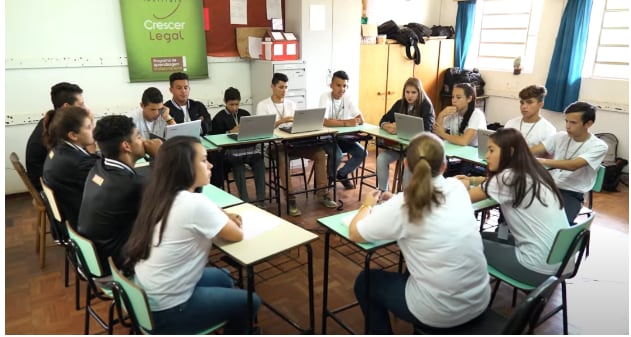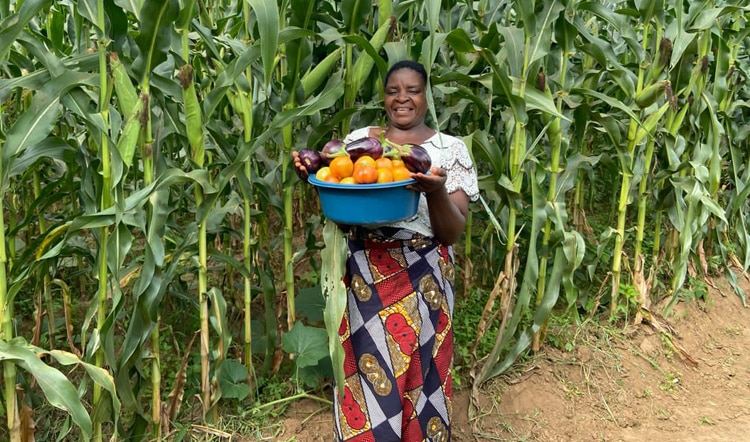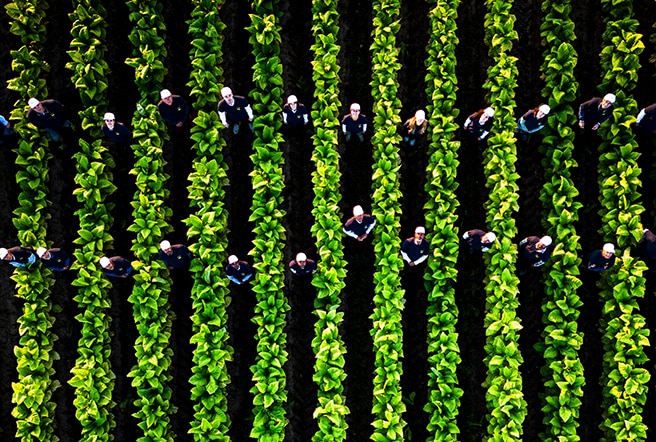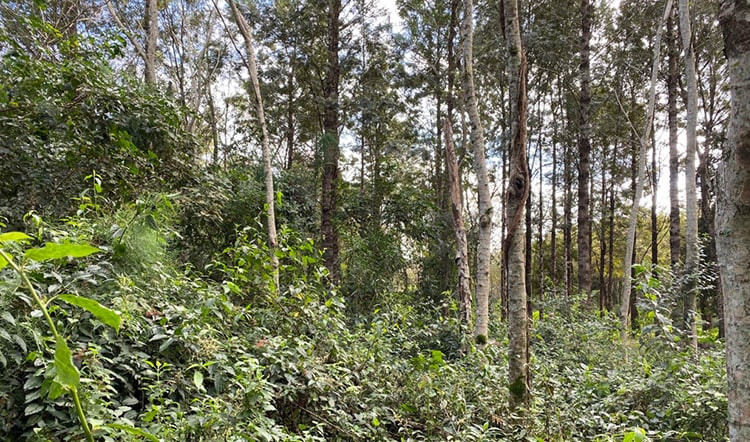The Growing Up Right Institute was founded in April 2015 by SindiTabaco (the Interstate Union of the Tobacco Industry, which represents the interests of the tobacco industry), with the sole focus of providing educational opportunities to young people among Brazil’s rural farming communities.
SindiTabaco had carried out years of outreach work before forming the Institute to combat instances of child labor. This unearthed a growing desire among the children of rural farmers to pursue further educational opportunities. Although the children’s parents often supported these ambitions, they also cited a lack of opportunities.The goal of the Institute is to offer these opportunities to adolescents in rural areas. By gaining further qualifications via a portfolio of educational programs, they have a chance to earn a higher income and access a wider range of career paths.
Completing these programs also enables these young people to contribute to the future successes of their family farms, by learning new agricultural skills and techniques. The work of the Institute closely models a similar program targeted at the urban youth of Brazil, called Young Apprentice, which has been lauded for its success in combating instances of child labor.
In 2016, the Institute launched the Rural Management and Entrepreneurship Program as part of their Rural Professional Learning Program. This joins the Institute’s three other programs: The Alumni Monitoring Program, the “Us for Them Program—the Voice of Rural Women,” and the Good Practices in Entrepreneurship for Education Program.
During the Rural Management and Entrepreneurship Program, students complete four modules designed to maximize the potential of rural living:
- Study and analysis of the student’s particular property’s surroundings.
- Mapping of local partnerships and strategic alliances.
- Working groups involving families and community.
- Building on earlier modules to consider improvements and development of a management or entrepreneurship product.
A supporter of the Institute since its inception, Philip Morris Brazil (PMB) has also offered strategic guidance and financial assistance, as well as hiring graduates from the above programs as apprentices.
Reaping the benefits
Alongside supporting the fight against instances of child labor, the educational and emotional development of these young people is one of the greatest benefits of completing a program. Indeed, graduates have reported how important their experiences have been in helping their personal and professional development.
Raissa Andreoli de Almeida was an apprentice on the program in 2020 and 2021: “My time at the Growing Up Right Institute was a unique experience, and I will carry much of what I learned with me for life.
“Thanks to the program, I learned to value the rural environment and the resources of my family’s property. My final project was on the pesticide-free cultivation of vegetables. We put my learnings into practice on our property and now have a healthier diet. I’ve also gained a lot of knowledge about plant growth and how to take care of their development.”
Nedio Vedoy Grasel was another student who completed the program, and was then hired by Philip Morris Brazil in 2020 and 2021. Reflecting on his time at the Institute, he said: “Being an apprentice at The Growing Up Right Institute allowed me to make several dreams come true, such as being hired by a good employer and receiving a reasonable salary.
“I learned a lot of new things, especially organizational skills, and overcame my fear of speaking on camera. I believe I can now do very well in jobs that require these skills.”
Aurélio Ramos, Project Manager and a Sustainability Coordinator at PMB who manages the relationship with The Growing Up Right Institute, echoes these sentiments: “The graduates mature not only as citizens, but also as entrepreneurs. They understand how to put their life skills into practice.
“In addition to the work in eradicating child labor, we emphasize the positive impact that the initiative can have with family succession; where young people can have a broader view of issues related to agriculture, and have the possibility of bringing advancements in technologies and agricultural practices to the farm.”
Investing in the future
In 2024, a new Rural Professional Learning Program was created in São João do Triunfo, Paraná, covering three states in southern Brazil.
In nine years, the Institute has covered 20 municipalities in the Southern Region of Brazil, running 54 classes of the Rural Professional Learning Program. Consolidating its presence in these diverse tobacco-producing regions will be one of the initiative’s next steps.
“We hope that in five years we will have reached more producer families,” says Ramos, “benefiting even more adolescents, and the communities in which they live.”







